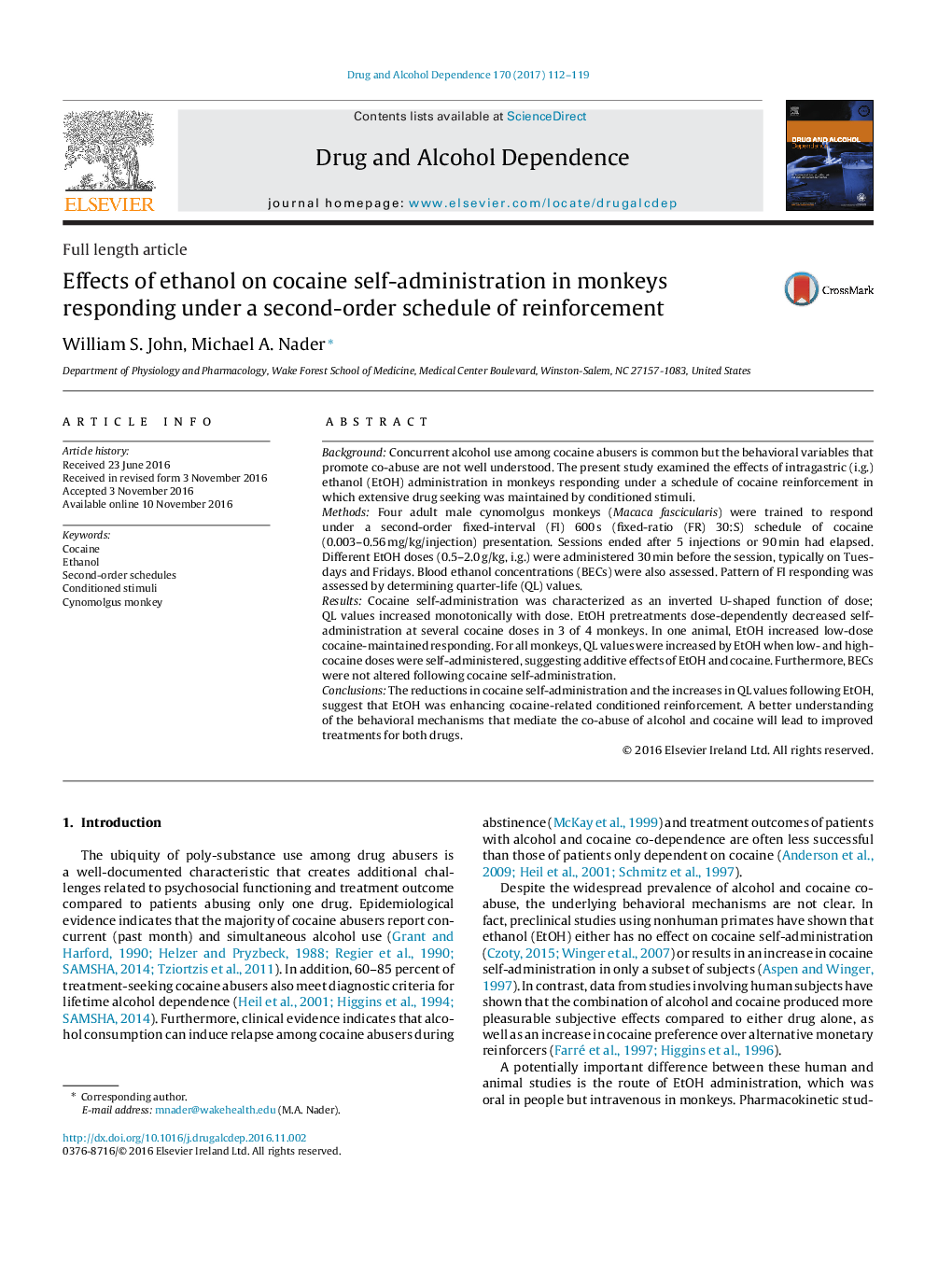| کد مقاله | کد نشریه | سال انتشار | مقاله انگلیسی | نسخه تمام متن |
|---|---|---|---|---|
| 5120303 | 1486121 | 2017 | 8 صفحه PDF | دانلود رایگان |
- Ethanol decreased cocaine self-administration under a second-order schedule.
- Ethanol enhanced conditioned reinforcing effects of cocaine.
- Cocaine did not affect blood ethanol concentrations (BECs) following 2.0Â g/kg ethanol.
- Individual differences were noted and related to ethanol pharmacokinetics.
BackgroundConcurrent alcohol use among cocaine abusers is common but the behavioral variables that promote co-abuse are not well understood. The present study examined the effects of intragastric (i.g.) ethanol (EtOH) administration in monkeys responding under a schedule of cocaine reinforcement in which extensive drug seeking was maintained by conditioned stimuli.MethodsFour adult male cynomolgus monkeys (Macaca fascicularis) were trained to respond under a second-order fixed-interval (FI) 600Â s (fixed-ratio (FR) 30:S) schedule of cocaine (0.003-0.56Â mg/kg/injection) presentation. Sessions ended after 5 injections or 90Â min had elapsed. Different EtOH doses (0.5-2.0Â g/kg, i.g.) were administered 30Â min before the session, typically on Tuesdays and Fridays. Blood ethanol concentrations (BECs) were also assessed. Pattern of FI responding was assessed by determining quarter-life (QL) values.ResultsCocaine self-administration was characterized as an inverted U-shaped function of dose; QL values increased monotonically with dose. EtOH pretreatments dose-dependently decreased self-administration at several cocaine doses in 3 of 4 monkeys. In one animal, EtOH increased low-dose cocaine-maintained responding. For all monkeys, QL values were increased by EtOH when low- and high-cocaine doses were self-administered, suggesting additive effects of EtOH and cocaine. Furthermore, BECs were not altered following cocaine self-administration.ConclusionsThe reductions in cocaine self-administration and the increases in QL values following EtOH, suggest that EtOH was enhancing cocaine-related conditioned reinforcement. A better understanding of the behavioral mechanisms that mediate the co-abuse of alcohol and cocaine will lead to improved treatments for both drugs.
Journal: Drug and Alcohol Dependence - Volume 170, 1 January 2017, Pages 112-119
